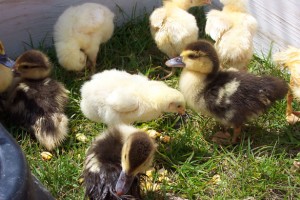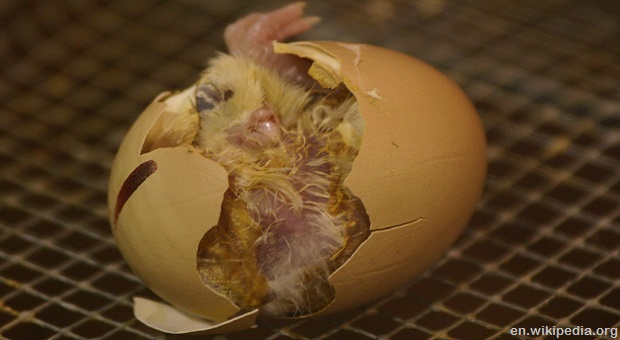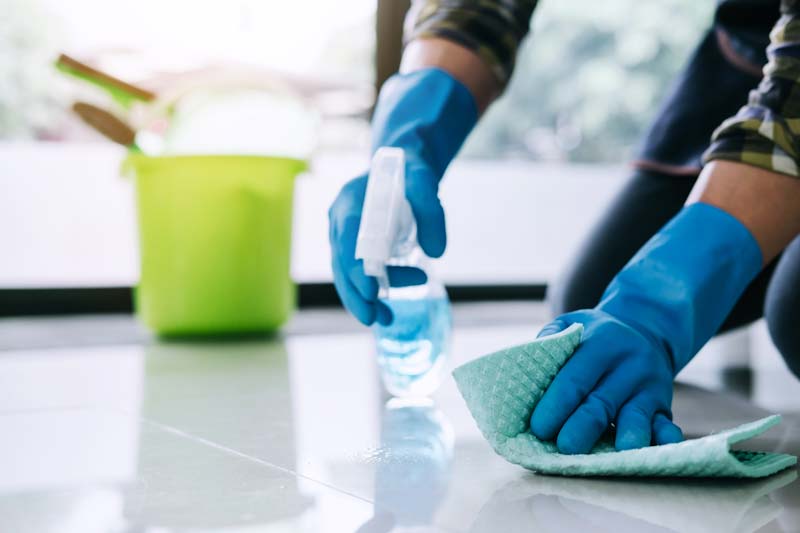Whether you’re raising chickens, ducks, geese or other fowl for meat or eggs, knowing how to incubate and hatch various species of fowl is an incredibly useful skill to have. There are many benefits to incubating your own eggs, including the fact that you can hatch a far greater number of chicks in an incubator than you can under even the best of hens.
Being able to hatch more birds is especially advantageous in a post-SHTF or TEOTWAWKI (The End Of The World As We Know It) situation because those chicks will be valuable, potentially worth many times their weight in gold, in trade and barter.
Even if you don’t intend to hatch a large number of birds, knowing how to incubate and hatch your own fowl is still good because you can’t always rely on a broody hen to do the job. Some hens may go broody but then give up after a week or two, leaving their clutch to die as a result.
Then there is the fact that many popular breeds, especially those used for egg laying, have been selectively bred for decades specifically to get rid of broody behavior since it decreases egg production, which again results in a lack of broody hens to hatch the next generation.
To ensure that your eggs are fertile, your laying hens should be left to roam with a suitable rooster. Most roosters can handle 6 – 8 hens for reliable fertilization of the eggs, while some breeds (like the bantams) can handle upwards of 10 – 12 hens, so stock your flock accordingly.
If you’re collecting eggs over the course of several days, you can store them in a cool, dry place away from direct sunlight or heat. In nature, hens often let their eggs sit for upwards of 7 – 10 days while they lay a full clutch. The eggs will remain in a dormant state until the temperature rises to 99 – 101 degrees Fahrenheit, with the best viability being within 4 – 8 days of being laid.
Preparing Your Eggs
The first step in preparing your eggs for the incubator is to ensure that they are all clean. Bacteria on the outer shell of your eggs can permeate through the pores of the shell to contaminate the egg. Such contamination can result in the death of developing embryos. Worse still, contaminated eggs can actually incubate the bacteria, causing toxic gas to build up within the egg until it explodes, in which case your whole clutch can wind up contaminated.
The best way to avoid contaminating your eggs is to keep the nests where your hens are laying clean and fresh, so that the eggs need little or no extra cleaning when you take them for incubation. If you must use eggs that have been dirty, then wash them thoroughly with warm water. Don’t use cold water to wash your eggs since the difference in temperature can cause the contents of the egg to contract and suck bacteria through the pores of the eggshell as a result.
Once your eggs are clean, you’ll want to label them; many people use a marker to label their eggs, but if you’re concerned about the ink permeating the eggshell you can use a pencil instead. Numbering your eggs for easy identification is highly recommended, but at the very least you should mark one side so that you can tell which way to rotate the eggs, especially if you intend to rotate them by hand instead of using an automatic egg turner.
Incubation Temperature & Humidity Levels
The ideal temperature for incubation is a nice solid 100 degrees Fahrenheit, while relative humidity should generally be kept at about 50% for the first 18 days. During the final 2 – 3 days you will need to increase humidity levels to 60 – 70%.
To maintain the proper humidity levels, simply follow the instructions that came with your incubator. Please note, though, that when you need to add additional water to maintain the humidity, you should preheat the water to 100 degrees in order to avoid causing any ambient cooling from the cold water.
Slight variations in temperature, while tolerable to a certain extent, should be avoided when at all possible. A degree or two lower will extend incubation times and may result in birth defects, while eggs that cool to even 95 degrees run the risk of killing the embryo. Temperatures above 100 degrees are, again, likely to result in birth defects or the death of the developing embryos.
For the purpose of candling your eggs, or if you need to turn them by hand, the incubator should be opened for as little time as possible and as infrequently as possible. Maintaining a constant temperature inside the incubator is one of the chief reasons why an automatic egg turner is such a good idea.
Automatic egg turners also relieve you of the responsibility of turning your eggs 3 – 4 times a day, a fact that is crucially important and all too easy to forget. Eggs that are not properly turned run the risk of birth defects, spontaneous death, or the chick becoming stuck to the shell.
Candling

You can candle eggs starting as soon as 24 hours after you have begun incubating them, but for the best results it’s generally good to wait until the third or fourth day at least, if not the sixth or seventh.
To candle your eggs, darken the room and simply take the egg to be candled gently in your hand. Holding the egg horizontally between the thumb and forefinger of one hand, bring the flashlight to press flush against the fat side of the egg.
The light will shine through the shell of the egg, rendering it translucent and allowing you to observe what’s happening inside. Eggs with white or light-colored shells are easier to candle than darker brown eggs.
As a point of reference, especially if you’re new to incubating fowl, you can also candle your eggs prior to putting them in the incubator. This will give you something to compare to when you candle them at 4 – 7 days. When you’re ready to candle the incubating eggs, you’ll be looking for a network of blood vessels; you may also be able to see a dark spot, roughly the side of a pencil eraser or smaller depending on how early you candle, which is the developing eye.
If you see no development, or you’re not sure, you can leave the eggs in the incubator a while longer; some eggs simply take longer to start developing, so you can make a note of suspect eggs and candle them again at 12 – 14 days incubation.
If you see a blood ring within the egg while candling at any stage of development, then you can remove and discard it, as a blood ring indicates that the embryo has died. A blood ring is pretty easy to identify, and often looks like someone drew a ring on the inside of the eggshell with a marker.
Pipping & Hatching
Starting on the 18th day, you should remove your eggs from the egg turner if you used one. At this stage they can be left simply laying on the floor of the incubator, as the chicks will begin rotating within their eggs to poke their beaks into the air pocket inside the egg.
By the 19th day you’ll probably be seeing the eggs move, and you may also hear peeping from within the eggs. Then the chicks will start pipping, with the earliest hatchers emerging on the 19th day and everyone else coming out between the 20th – 22nd day.
When a chick is ready to hatch, it will start to break out of its shell by first breaking a small hole in the shell. This is called pipping, and in most cases the chick will complete the process of hatching within 8 – 12 hours of initially pipping.
After pipping, the chick will drill through its eggshell in a horizontal circle before busting out. Once a chick has begun pipping, pay attention to how much time has passed; most chicks will get out of their eggs just fine on their own, but occasionally you may need to help a chick.
If a chick has pipped for more than 24 – 36 hours, it’s time to consider lending a hand. You must be extraordinarily careful if you assist a chick, since it is very easy to hurt them at this stage. When helping a chick hatch, pay close attention to the inner membrane and use plenty of warm water to keep the egg and membrane moist. If there is any bleeding, stop immediately and wrap the egg back up in a moist paper towel and return it to the incubator.
Unlike mammals, chickens do not have an umbilical cord, instead they are attached to the network of blood vessels that line the membrane of their egg. These blood vessels are the last thing to be absorbed before hatching, and if you assist a chick in hatching before it has fully absorbed the blood vessels you run the risk of causing it to bleed to death. A few drops of blood often accompany the hatch, but more than that becomes dangerous for the chick.
Once your chicks have successfully hatched, you can remove the egg shells from the incubator, but leave your chicks inside until they have thoroughly dried out and fluffed up. After that, you’ll move them to their nursery location where they should have an adequate heat lamp to keep them warm in the absence of a mother hen.
Don’t Count Your Chickens…
Until They Hatch

Still, resist the temptation to tally up your chicks because that good old phrase is around for a reason. Spontaneous death of the developing chick(s) can and does happen.
Usually, if it’s going to happen, it will happen early during incubation, or by the 12 – 14 day mark, but some chicks die just a day or two before hatching, or they simply don’t make it out of their shells once they start.
Sad though this can be, it’s one of those things that happens, and you should be prepared for the possibility. So abide by the wisdom passed down from generations before you, and don’t count those chickens until they hatch.
Additional Resources:
– a short youtube video showing how to candle a few different types of eggs
Video first seen on Charlie Trevino
– UC Davis Department of Animal Science – a useful page with photos of several different egg types during candling, and photos of various non-viable eggs, blood rings, etc.
This article has been written by Gaia Rady for Survivopedia.
| This article is sponsored by “Building Chicken Coops Guide” – Know the essential tips on building a predator-proof chicken coop to let the chickens lay the eggs safely. |









Cass | October 19, 2013
|
No. You don’t hold the egg with the small end up to candle them. Doing so risks rupturing the air cell at the large end of the egg. When looking for veins it doesn’t really matter where the light is held, but it is best to hold the egg large end up and shine the light through the small end to check on development.
Re: temperature changes–Broody hens get off their nest for as long as an hour to eat and poop….how long they stay off the nest depends on the air temperature….they seem to instinctively know how long it is safe to leave the eggs unheated, so taking the lid off the ‘bator for a few minutes each day isn’t going to make a huge difference in your hatch rate.
You didn’t mention cleanliness while turning eggs. Wash your hands so you do not transfer bacteria to the egg shells while turning them twice a day.
If someone is thinking of hatching eggs in an incubator they should do it now, before their life might depend on the results of the hatch….because every ‘bator is different and some breeds of eggs are harder to hatch than others. Some eggs hatch better if humidity is low, others shrink wrap if not kept high….so experiment now before you really need to know.
(Personally, I have breeds that are known for their broodiness and let them do the work, both of hatching and integration with the flock. I am constantly breaking a broody of her hormonal response to seeing an egg left in the nest overnight. My broody hens are also Grid Down proof)
HANK SITE | December 23, 2013
|
Take care when the hatch starts. The first being they see they think is their mother. They will follow you any where and wait for you to lead them around.
Stef | August 8, 2017
|
(I don’t know why only caps) So true, back in the 70’s I hatched 25 goslings and they would walk behind me every day about 1/4 mile to pick up the mail at the Post office. It actually makes handling them so much easier, if you don’t “bond” as parent good luck trying to move them about as a group
steven jackson | January 4, 2014
|
I LOVE ALL THE INFO THANKS SO MUCH!
Pingback:Eggs: One of the Perfect Survival Foods | SurvivoPedia | August 21, 2014
|
Pingback:Eggs: One of the Perfect Survival Foods | Wichita Observer | August 24, 2014
|
Lindsay | May 31, 2017
|
2 of my duck eggs hatched today. I have 6 more that have not piped at all. Should i still hold out with hopes that they will hatch. They looked fine.